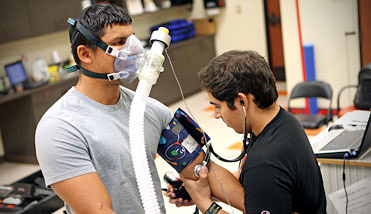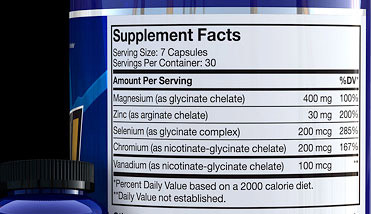SUPPLEMENT STUDIES VS. PERSONAL EXPERIENCE (WHY RESEARCH MATTERS!)

Over the past few years I’ve put out quite a number of different bodybuilding supplement reviews outlining the unbiased facts behind a wide variety of products that claim to build muscle and burn fat.
Spreading truth in this specific area is one of my favorite things to do, since the industry is so overrun with misleading fads and gimmicks that do nothing more than thin out people’s wallets without delivering any noticeable results in return.
As I covered in a previous post, the majority of bodybuilding and fitness supplements being sold today are, quite simply, bullshit.

But predictably, any time one of my reviews portrays a particular supplement in a negative light, it always ends up being met with a certain amount of criticism from the readers who personally use that particular product and swear by its effects.
This is totally fine and is to be expected, and I encourage people to give their thoughts and opinions any time I post a particular piece of content.
However, when it comes to the issue of supplements, the same responses always seem to pop up over and over again…
“I don’t care what the studies say, I used tribulus and it definitely worked for me.”
“I disagree because I’ve been using glutamine for 2 months and my gains have increased for sure.”
“You can’t say anything about creatine ethyl ester until you’ve used it yourself. I’ll take personal experience over scientific research any day.”
While I do understand the basic sentiment here, there are actually a couple of fundamental problems with relying solely on “personal experience” to gauge the effectiveness of a natural supplement that claims to help you build muscle or burn fat at a faster rate…
1) The First Obstacle Is The Placebo Effect.

This is much more powerful than you might think and comes into play big time whenever you consume a particular supplement with the positive expectation that it’s going to work.
By simply believing that the supplement is going to produce beneficial effects (due to the marketing behind the product, anecdotal reports from other users or just your basic desire to have it work), it’s very easy to convince yourself that, for example, your “muscles look fuller” or your “abs look leaner” or that your “recovery has improved” as a result of using it, even if it hasn’t had any measurable impact at all.
Because our own subjective perception of our bodies is so closely intertwined with our personal beliefs, this can happen very easily without you even realizing it.
I can’t even count how many times someone has told me that they “took creatine before their workout and felt way stronger” (creatine has no immediate effects on workout performance) or that they “started using glutamine and are recovering faster in between workouts” (most orally consumed glutamine doesn’t even make it into the bloodstream). These are just a few of countless examples.
The placebo effect is a very well documented phenomenon, and we’re all susceptible to it in one way or another.
2) The second obstacle is the very slow, gradual nature of muscle growth and fat loss.

As I covered in another recent post, in the typical “best case” muscle building scenario, a natural trainee can probably expect to gain around half a pound of new lean muscle tissue per week.
This assumes they’re a complete beginner, have decent muscle building genetics and are doing everything correctly in terms of training and nutrition. For each year of consistent lifting that passes, that number will probably decrease by about half.
So, let’s assume the very best case scenario of half a pound of muscle per week combined with the use of a particular supplement that claims to increase your rate of muscle growth by 20%. (Keep in mind that I’m being VERY generous here as well, since no natural muscle building compound is going to deliver gains anywhere close to that)
This means that after 3 months of training without using the supplement, you would expect to gain around 6 pounds of muscle, and by adding the supplement into your plan you would gain an additional 1.2 pounds of muscle on top of that.
There is no way under any realistic scenario that any trainee (especially a complete beginner) is going to be able to accurately account for an additional 1.2 pounds of muscle over the course of 3 months (or 1/10th of a pound of muscle per week) as a result of adding some particular supplement into their program.
Unless you’re living in a vacuum and are controlling every other variable of your program perfectly, from training to nutrition to sleep to your other day-to-day activities… AND are able to measure your exact body composition (gains in muscle vs. body fat) with pinpoint accuracy… Then considering the very modest effects of even the very best, most scientifically backed supplements out there, you really have almost no way of measuring the specific long term effects of any specific muscle building compound that you add into your program.
And once again, the specific example I’ve given above is incredibly generous and not realistic in virtually all cases.
Try plugging in those same variables using 0.25 pounds of muscle per week and a 10% increase via supplementation, or 0.10 pounds of muscle and a 5% increase and you’ll quickly see where I’m going with this.
Although fat loss does occur at a reasonably quicker pace than muscle growth does (around 1-2 pounds of fat loss per week is realistic in most cases), it would still be extremely difficult to accurately measure this for most people.
Considering the two points above, this is exactly why when someone tells me that they “started using a testosterone booster and saw an increase in gains” or that they “switched from whey protein concentrate to hydrolyzed whey isolate and can definitely feel the difference”, I automatically know that something probably isn’t right.
Either they’ve “placebo’d” themselves into thinking that the product is working when it actually isn’t, or they really are experiencing an increase in progress but it’s actually due to some other much more likely outside factor, such as an improvement in their training, nutrition or just better overall adherence to their plan in general.
This is why supplementation is typically best thought of as a game of making “educated guesses”, and this is exactly why concrete research studies really DO matter and should be taken into account when deciding which supplements to include or not include in your plan.

Obviously many of these studies do have their limitations, but they’re still the best tool we have available for getting an objective, concrete look at how these various supplements work across large groups of people and without our own biases getting in the way.
The studies may not be perfect, but they’re far less imperfect than our own subjective judgement is, especially when trying to measure a process as slow and gradual as muscle growth or fat loss.
The main point I want to get across here is that, when confronted with a new supplement that you feel might be worth trying out, do your research first.
Don’t automatically take the attitude of “I’ll just try it out and see how it works for me”, since as I’ve pointed out, this is next to impossible to actually do in almost all situations when dealing with a product that claims to increase your results over the long term.
Instead, first take a look at the label and check out what specific ingredients are included and at what specific dosages. Don’t take seriously whatever marketing points that particular company feeds you about the product, since far more often than not they’ll either be hugely over-hyped or just downright false.

Run a Google search to see what the ingredients are, what they’re supposed to do, what the proper dosages are and what studies are available to support their use.
Use a free resource like Examine.com that compiles tens of thousands of health and fitness supplement studies into one place for easy use and do some research there. (You can also purchase their complete Supplement Goals Reference Guideand/or Supplement Stack Guides if you want to make the process even easier)
If you have a particular set of experts that you look to for bodybuilding advice and who you know base their recommendations on concrete science and research, see what they have to say about it.
If you want to go straight to the source and look up the actual studies for yourself, then head over to PubMed and punch in the specific compounds you’re interested in to see what you can find there.

When you consider how much any given supplement can actually end up costing you when used over the long term (for example, $40 per bottle once a month will cost you nearly $500 at the end of the year), you owe it to yourself to make sure that you’re investing that money wisely and with good reason to do so.
Now, there are two final notes I should point out there…
First off, there is a difference between supplements that are designed to improve your muscle gains over the long term through daily use in comparison to those that are designed to deliver immediate effects on training performance when taken before workouts.
For example, if a particular supplement claimed to improve your strength and mental focus when taken in a single dose 30 minutes before training (such as caffeine or l-tyrosine), then using your own subjective judgement would be of more value in that case since you could directly feel the effects.
However, I would still encourage you to do your research first and use that in combination with your own subjective experience, since as I mentioned earlier, the placebo effect can be quite powerful and can very easily skew your perception of just how significantly or insignificantly any specific supplement is working.
And secondly, the only other exception I would make here is for creatine monohydrate, as this is the one muscle building supplement out there that you truly can use for a 2 or 3 week period (or for 4-5 days if you perform a loading phase) and see obvious, measurable increases in body weight and strength. (Or conversely, you could use it for that same period and see no gains at all if you’re a “creatine non-responder” and thus be able to determine that it doesn’t work for you.)
If you found this article helpful, make sure to sign up for your FREE custom fitness plan below...




